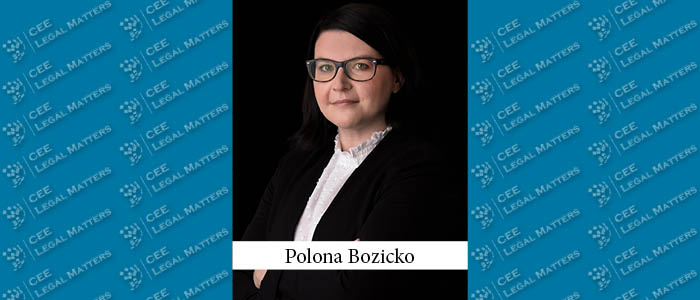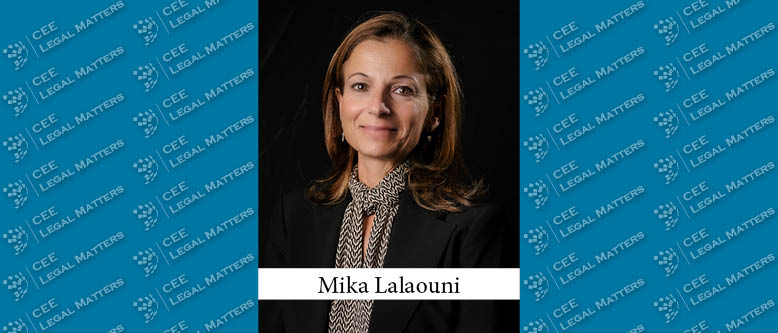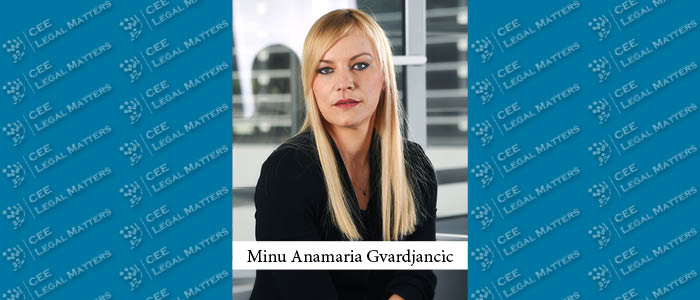When importing goods from third countries into the European Union (EU), you must adhere to EU and national laws regarding importing, declaring, and applying customs duties (such as import duty, value-added tax, and excise duty on certain products).
Current Trends and Challenges in Slovenia’s Real Estate Market
In recent months, Slovenia’s real estate market has experienced significant shifts driven by economic, technological, and regulatory factors, with more changes expected.
Will New Slovenian Legislation Finally Provide Effective Judicial Protection to Former Holders of Qualified Liabilities of Banks?
On June 15, 2024, the long-awaited Act on the Judicial Protection Procedure for Former Holders of Qualified Liabilities of Banks (ZPSVIKOB 1) entered into force in the Republic of Slovenia.
A Promising Future for PE and VC Funding in Slovenia
Slovenia’s economy has demonstrated resilience and adaptability, with a projected GDP growth rate of 2.3% in 2024, up from 1.6% the previous year. Inflation has stabilized at around 2.8%, and unemployment is at a historically low rate of 3.7%.
Navigating the Revival: The New Era of Real Estate Law in Greece
Following a prolonged financial crisis, Greece’s economic recovery has significantly progressed in recent years, leading to a resurgence in the real estate market. This revival is not just a mere uptick but a significant surge, evident in rising property prices, increased transaction volumes, and growing interest from foreign investors. Prominent areas such as Athens and Thessaloniki and popular islands like Crete, Mykonos, and Santorini have experienced a substantial increase in real estate activity.
The Energy Market in Greece: Legislative Developments and Challenges
The energy market in Greece is undergoing dynamic changes and challenges. The country is trying to adapt to the requirements of the energy transition by focusing on the development of renewable energy sources (RES) and enhancing its energy independence. At the same time, legislative developments and initiatives aim to address existing challenges and promote sustainable solutions.
Navigating the Corporate and M&A Landscape in Greece: ESG Due Diligence in Focus for Sustainable Deal-Making
Despite a slowdown experienced in the Greek M&A sector in 2023, primarily attributed to factors such as inflation, increased interest rates, pervasive geopolitical instabilities, and diverging valuation perspectives between sellers and buyers, the ongoing year of 2024 has seen a notable upsurge in transaction activity. This upward trend underscores the robustness and resilience of the market, which is not only recovering but is also attracting heightened attention from international investors.
Czech Law Opens the Door to Class Actions
On 1 July 2024, the long-awaited Act on Collective Civil Proceedings (the Class Actions Act) entered into force, allowing consumers and small entrepreneurs to pursue their claims in court together through a class action.
Personal Data Regime Compliance for AI Systems: How the Law on Personal Data Protection Impacts Development and Deployment of Artificial Intelligence in the Republic of Moldova
The Law on Personal Data Protection (LPDP) significantly influences the development and deployment of Artificial Intelligence (AI) systems in the Republic of Moldova. As companies increasingly adopt AI technologies, awareness and understanding of LPDP requirements application is crucial to ensure compliance and protect the rights of individuals.
Austria: Blood, Tissue, Cells and More – New EU Regulation on Substances of Human Origin
In Austria, almost 1,000 units of stored blood are needed every day; in Germany, it is around 15,000 units. Blood is an important emergency medication in the event of accidents, childbirth, surgeries or serious illnesses. It has a shelf life of only 42 days and cannot be produced artificially.
Legal Regulations Regarding the Status of Freelancers
Although not recognized in domestic legislation for a long time, freelancers finally saw a resolution to their long-standing battle for legal recognition of their status by the end of 2022. Amendments to the Law on Personal Income Tax (“Law”), which followed months of protests and negotiations with relevant authorities, officially established and regulated the status of this category of workers. This legal framework now clearly defines their rights and obligations in a transparent manner.
Harmonisation of Serbian Law on Payment Services with PSD2
The Parliament of the Republic of Serbia recently adopted amendments to the Law on Payment Services (“Law”) that will start to apply from 6 May 2025 (“Amendments”). By the Amendments, the Law is harmonised with the EU’s PSD2. The key goal of the Amendments is the enhancement of innovations on the market and securing increased competition and transparency in the area of payment services, as well as better protection of payment services users and payment security. Below we provide an overview of the main novelties brought by the Amendments.
Ukraine: Development of a Public-Private Partnership During Wartime
The use of PPP mechanisms in Ukraine is not common and has been only recently gaining momentum. Even though the Law on Concessions was adopted back in 1999 and the Law on Public-Private Partnership in 2010, these instruments have long been underestimated.
Romania: PPP Legal Framework – A Pragmatic Approach
On January 11, 2024, Romania enacted significant amendments to its legislation on public-private partnerships (PPPs). While the country has had a dedicated PPP legal framework since 2002, no major infrastructure projects have been developed through this mechanism. To attract private investors and international financial institutions to participate in such projects in Romania, Government Emergency Ordinance no. 39/2018 on PPPs (GEO no. 39/2018) has been amended substantially.
Slovenia: The Impact of Renewable Energy Deployment on Infrastructure
Slovenia is adopting the EU’s strategy to boost renewable energy (RE) for electricity to enhance decarbonization. Unlike France’s reliance on nuclear power, Germany’s focus on renewables like wind, solar, and hydro hasn’t significantly reduced CO2 emissions, evidenced by its emissions being eight times higher than France’s.
Turkiye: Green Energy Infrastructure and PPP Projects
Public-private partnerships (PPPs) are cooperation agreements between public and private sectors for providing public services traditionally provided by the state and funded by taxpayers. These partnerships involve sharing investments, risks, liabilities, and revenue between the parties, ensuring public welfare by addressing economic challenges in essential sectors. PPPs offer an alternative approach to traditional state-financed projects, allowing faster and more efficient construction of large-scale projects.
Czech Republic: Permitting of Infrastructure Projects Under the New Czech Construction Act
In 2021, a new Construction Act (No. 283/2021 Coll.) was adopted in the Czech Republic. This groundbreaking legal norm was designed to solve problems in the permitting process for infrastructure and other projects, such as lengthy administrative procedures, a cumbersome process of obtaining consents and opinions from various authorities, and often a lack of coordination among authorities, which frequently caused inconsistencies in interpreting the law as well as delays.
Austria: Public-Private Partnership – Is This Model Becoming Obsolete?
Public-private partnerships (PPPs) offer a way to procure infrastructure and services that traditionally do not include private capital involvement with private finance participation. PPPs have been introduced as a general acknowledgment of the need to solve the infrastructure gap in many countries – especially in emerging market and developing economy (EMDE) countries. EMDE countries need to rely on private resources as a means of accelerating infrastructure development. Attractive for a high degree of flexibility in light of multiple variations across the globe regarding the scoping of a PPP, PPPs enable efficiency and high value for money.































